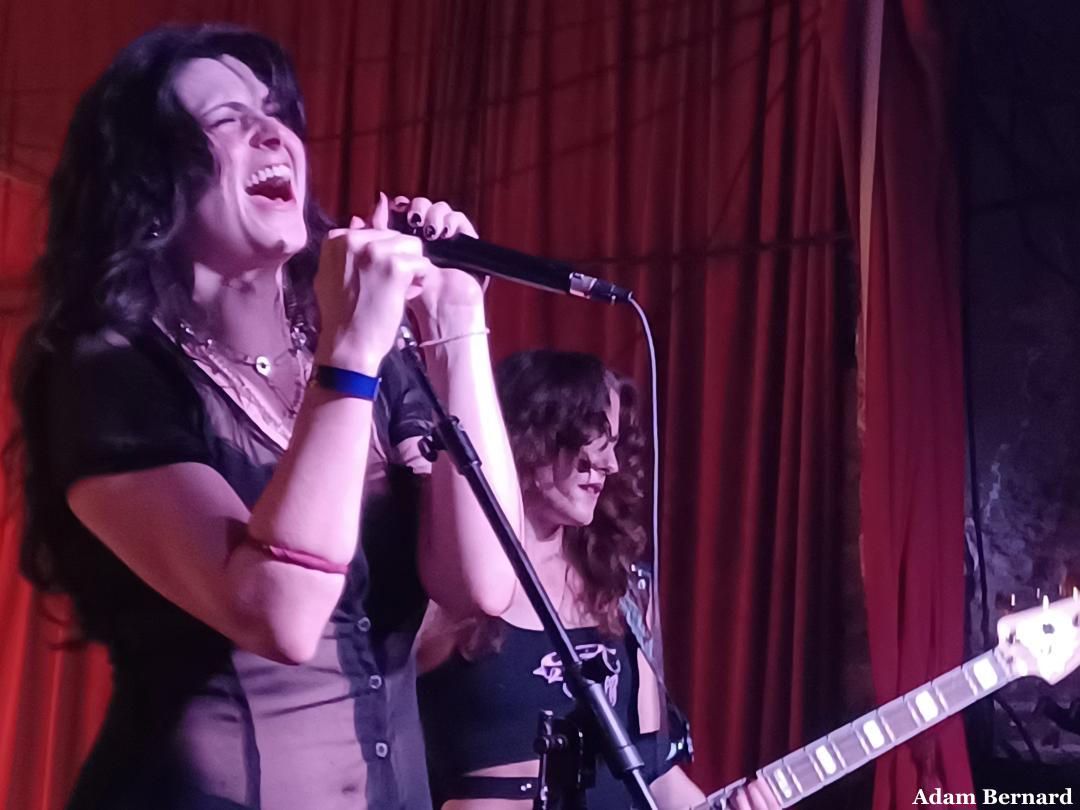The Way In Which Queer Artists & Bands Have Replaced Hip-Hop

Queer band Pig Milk rockin’ a packed house at Arlene’s Grocery
Over the past handful of years I’ve found myself writing more about queer artists – whether it’s been interviews, show reviews, or as part of my year-end must-hear lists – and rarely about hip-hop. Recently I started to dig into why.
I blamed Drake for my falling out of love with hip-hop, but while he provided a fun scapegoat, I knew it was deeper than that. My issue had become that with almost every new artist that came out, I could easily parallel their work to someone I’d heard before.
Basically, the stories being told were no longer new.
They also were no longer news.
Back in the day Chuck D called hip-hop “the Black CNN,” and he was absolutely right. For me, a white kid from the suburbs, hearing Public Enemy, and NWA for the first time was an educational experience. Heck, my initial listen to NWA’s “Fuck Tha Police” was downright jarring. At the time the father of one of my best friends was a cop, and all I knew of was the friendly officer who made sure we were all good while trick-or-treating. Why would anyone want to kill him?
Obviously, acts like NWA, and Public Enemy opened my eyes to what was going on in communities other than my own. They were, as Chuck said, the Black CNN.
Now, however, those stories that we could previously only hear through hip-hop are on the actual CNN, and on the front pages of newspapers (or in modern terms, those newspapers’ websites).
For a white kid in the suburbs in 2025, “Fuck Tha Police” doesn’t have nearly the same impact because of the impact the song, and that generation of hip-hop artists, made on the world – they literally changed the face of news.
This is where queer artists, and my appreciation for them, comes in.
Just like with hip-hop I came in as an outsider. With hip-hop I was a white kid from the burbs (who ended up loving hip-hop so much I’d write about it professionally for a number of years). With queer artists, I’m the straight guy in the crowd.
Being that outsider, however, gives me a unique vantage point, and just like hip-hop artists gave the burbs a raw, unsanitized view of the realities of urban life, queer artists and bands are giving the straight world a very real view of queer life.
In other words, they’ve become the new minority community finally getting to tell their authentic stories.
Yes, there have always been queer artists in music, just like there had been Black artists who were political long before hip-hop, but what’s happening now is far greater than an occasional artist who happens to be queer. This feels much more like a movement.
There’s no longer a need to hide things behind metaphors, be non-gender specific with lyrics, or switch the gender of the subject of a song to placate a straight audience (although “Fat Bottomed Girls” will always be a classic).
Of course, much like with hip-hop, the mainstream is embracing queer artists who have a specific look, or sound – basically, what’s viewed as marketable – so once again it’s up to listeners to dig a bit deeper to find the most gripping, and affecting musicians, and bands.
Speaking from experience, you’ll know it based on feeling.
When I first clicked play on queer indie rock artist Fusilier’s Ambush the raw energy drew me in, and I played the album over and over and over again, letting it all sink in.
I’ve attended a number of shows of the queer punk rock band Pig Milk, and while I have stood on the outside of what I affectionately dubbed the lesbian mosh pit, the intensity was infectious, and you had to take notice of the connection between the artist and their crowd.
Then there was the first time I saw queer hip-hop artist Chris Conde. Some may be jarred by the shock value of his clothing, or lack thereof by the end of his set, but that was totally secondary when he rapped a song titled “Growing Up Gay,” which is about the struggles he had coming out, and accepting, and loving himself.
The majority of the crowd that night was straight, and we were all in tears, because even though we couldn’t directly relate to it, he made it so we fully understood.
If anyone ever questions the concept of Pride, I point them in the direction of that song.
So while hip-hop was once the Black CNN, giving a voice to a community that desperately needed one, queer bands and artists are now doing the same for their own community.
Just like with hip-hop, what you hear can be eye opening, and at times even jarring, but when you find the right artist, the combination of passion and purpose make it some of the most exciting music being made today.

Comments